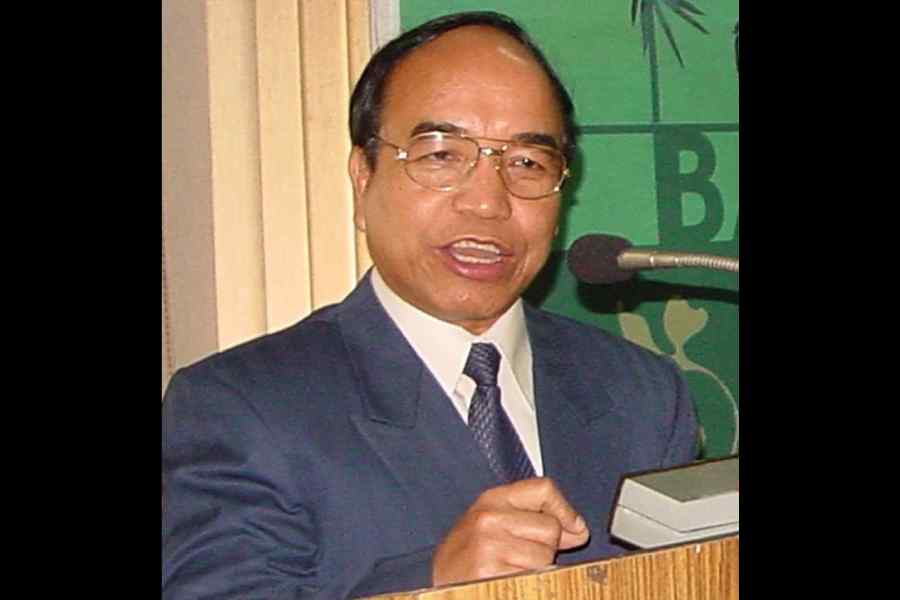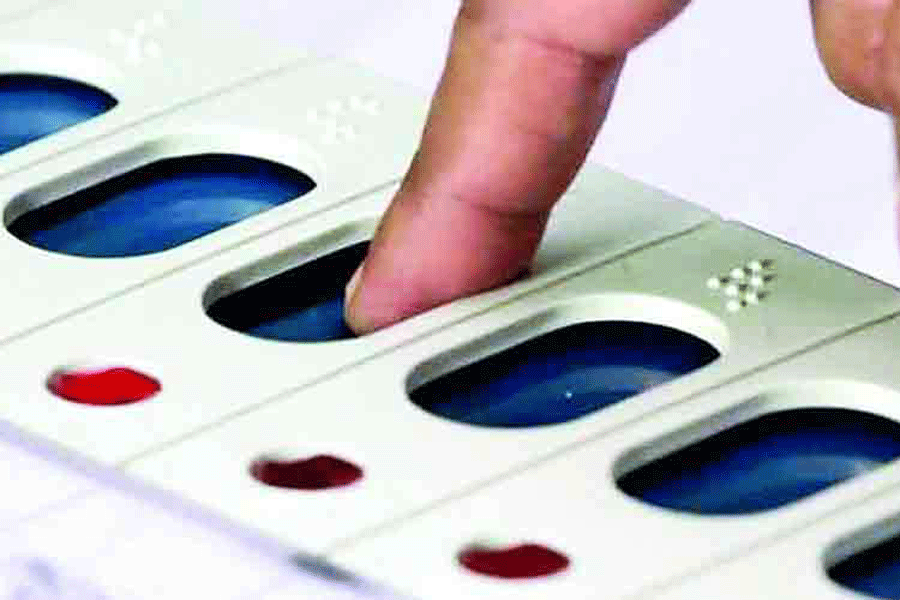Mizoram chief minister Zoramthanga, a BJP ally at the Centre, has said he will “not share the stage” with Narendra Modi if the Prime Minister visits the poll-bound state, a stand forced seemingly by the unrest in neighbouring Manipur.
“No, I will not share the stage with him because... the people of Mizoram are Christians. When the Manipur people, the Meitei people, burn hundreds of churches there.... They (Mizos) are cent per cent against that kind of idea. To have sympathy with the BJP at this time, it will be a big minus point for my party (MNF),” Zoramthanga said.
“Therefore, it will be better (that) even if the Prime Minister comes alone, he shares a platform by himself and I get a platform by myself. That will be better for both of us.”
Although the MNF is part of the NDA at the Centre, it has no truck with the BJP in the state.
The Manipur violence, which has pitted the largely Hindu Meiteis against the Kuki-Zo, has caused anger in Mizoram because Mizos share the same ancestry with the Kuki-Zo and are mostly Christian like them.
The comments by Zoramthanga, who is president of the ruling Mizo National Front (MNF), came when he was asked during an interview with BBC News Hindi whether he would share a stage with Modi when the Prime Minister came campaigning for the November 7 Assembly polls in Mizoram.
According to the BJP, an Opposition party in Mizoram, Modi is scheduled to address a rally in Mamit on October 30.
Zoramthanga’s comments indicate that the turmoil in Manipur, which has had a BJP-led government since 2017, is likely to have an impact on the upcoming Mizoram polls. Over 87 per cent of Mizoram’s population is Christian.
In the interview, Zoramthanga, a former militant, said his government’s decision to provide relief to refugees from Myanmar and Bangladesh, and to the internally displaced persons (IDPs) from Manipur, would benefit the ruling MNF in the elections.
“Well, it is a big benefit and it is a big plus point for my present election. We are just following what the government of India had done (helping refugees from East Pakistan in 1971),” he said.
“In 1971, I was in East Pakistan. How many millions of refugees you (the Centre) entertained, armed and helped gain Independence (a reference to the creation of Bangladesh in 1971)?
“We are just following in your (the Centre’s) footsteps. Our brothers and sisters come from Myanmar. We don’t arm them. We simply give them food and shelter. We are just following the humanitarian side.”
Zoramthanga said the refugees from Myanmar and Bangladesh and those displaced from Manipur were all Mizos and wielded “a lot of influence” in Mizoram.
Reacting to Zoramthanga’s comments in the interview, Lalthlamuana, an Aizawl-based political observer and faculty member at Pacchunga University College, told The Telegraph that many churches had been vandalised and demolished in Manipur.
“People in Mizoram are unhappy with the BJP (over what has happened in Manipur). To them, the BJP-led state government in Manipur and the central government have failed to handle the Manipur crisis,” he said.
“People are also unhappy with the BJP for the atrocities committed against Christians and other minorities elsewhere in India.”
Lalthlamuana added: “Moreover, the Mizoram government requested relief (Rs 10 crore) for the IDPs from Manipur taking shelter in Mizoram, but the central government has not yet sanctioned the relief amount.
“All this has not gone down well with the Mizo people. Given the overall situation vis-a-vis Manipur, sharing the stage with the Prime Minister or the BJP will adversely impact Zoramthanga and the ruling MNF.”
Reacting to Zoramthanga’s interview, uploaded on Monday evening, Congress spokesperson Lalhruaitluanga Bawitlung said it was a “perfect example” of “run with the hare and hunt with the hound”.
He said from Aizawl that if Zoramthanga did not want to share the stage with the Prime Minister, he should also pull out of the NDA.
Congress leader Rahul Gandhi had projected the MNF and the Opposition Zoram People’s Movement (ZPM) as “partners” of the BJP, a charge denied by the MNF which says it has a “distinct” identity.
Zoramthanga had written to his Manipur counterpart, N. Biren Singh, on May 4 — the day after the unrest broke out — that he was “deeply pained” at the “violence that has flared up in parts” of Manipur.
He had touched upon the “underlying tension between the Meitei community and tribals” in Manipur while urging Singh “to try and bring an end to the senseless violence”.
The strife has left at least 176 people dead and over 67,000 displaced. In September, the Manipur police had said that 4,786 houses and 386 religious places had been vandalised or destroyed during the unrest.
On June 12, the Indigenous Tribal Leaders’ Forum (ITLF), a conglomerate of recognised tribes in Churachandpur district of Manipur, claimed in a memorandum to the Manipur governor that 253 churches had been burnt down during the continuing unrest.
“The Kuki-Zo people have been enduring one of the most challenging phases in our history as a result of the ethnic cleansing campaign by the Meiteis and the communal government of Manipur,” the three-page ITLF memorandum alleged.
The MNF is contesting all 40 seats in Mizoram like the ZPM and the Congress. The BJP has fielded 23 candidates, 16 less than in 2018.
The upcoming Assembly elections will be a three-cornered fight between the MNF, ZPM and the Congress, with the main contest between the MNF and the ZPM. The BJP will be influential in a few pockets, an observer said.
The MNF is looking at a second straight term, and Zoramthanga at his fourth term as chief minister.
Zoramthanga said in the BBC interview that he believed peace would soon come to Myanmar because of the peace talks initiated by Indian national security adviser Ajit Doval and himself before the last elections in the neighbouring country.












